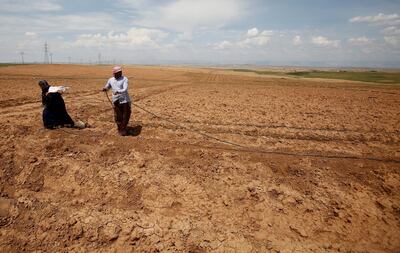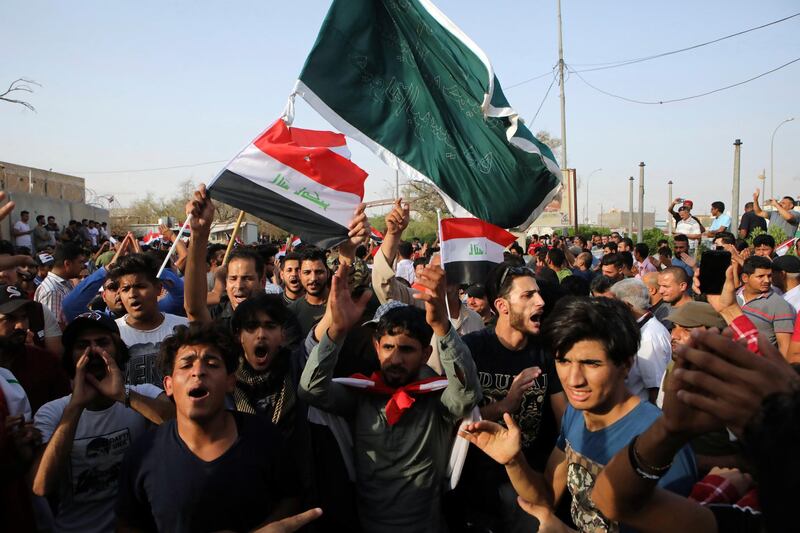The National
Saudi Arabia has reportedly agreed to build a solar power plant and sell electricity to Iraq at a steep discount compared to what the war-torn country previously bought from Iran.
The deal, which has yet to be approved by Iraqi authorities, includes building a 3,000-megawatt plant in Saudi Arabia within a year of the agreement, Iraq's Ministry of Electricity spokesman Mussab Serri said. Iraq will buy the electricity for $21 (Dh77) per megawatt-hour, or a quarter of what it paid Iran for the imports, Mr Serri said.
Protests have broken out in Iraq this month, spurred by anger over unemployment and inadequate public services — including power and water shortages. Iraq halted purchases of electricity from Iran in July, exacerbating a gap between the supply of electricity and consumption that has resulted in rolling power cuts.
_________
Read more
Iraqi PM sacks electricity minister after protests
Ayatollah Ali Al Sistani calls for new Iraq government to be formed as soon as possible
Iraq to put election officials on trial over fraud in May's poll
_________
Chronic power shortages coupled with scorching summer temperatures have exacerbated widespread discontent, sparking deadly demonstrations. Fourteen people have been killed and hundreds wounded over the past three weeks.
Iraqi Prime Minister Haider Al Abadi suspended Electricity Minister Qassim Fahdawi on Sunday while the government investigates why the power service is poor. Two weeks ago, Iraq formed a committee to come up with plans to address protesters' concerns and it allocated 3.5 trillion dinars ($3 billion/Dh11bn) to support services that would address the issues.
Since the toppling of dictator Saddam Hussein in 2003, Iraq has allocated in state budgets a total of US$40 billion to rebuild its power network, according to official figures.
But much of that has been siphoned off by politicians and businessmen in a country listed by Transparency International as the world's 12th-most corrupt.
Protesters have also railed against unemployment, state mismanagement and a lack of clean water. Stagnant water with sewage has caused health problems and tap water is sometimes contaminated with mud and dust.
Southern Iraq in particular has suffered a punishing drought, with desperate cattle breeders forced to sell off animals to keep the remaining ones alive.
Local authorities estimate that 30 per cent of cattle across the south of the country have been lost during the drought, either of thirst or sold off for slaughter.
That is a major blow for the estimated 475,000 families who make their livings from livestock across the south of the conflict-hit country.

Herder Ali, 24, understands only too well the challenges. He has to travel ever greater distances with his flock to find water.
Around him, canals have run dry and the cracked earth, empty water pipes, and dead grass testify to how few options farmers now have.
To quench the thirst of their animals they have to pay, and the price of water has shot up, he told Agence France-Presse.
This year rainfall has been particularly scarce and reservoirs currently stand at only 10 per cent full.
"Never in its history has Iraq known such a catastrophe," said Ahmed Al Issawi, head of the agricultural cooperative in Najaf.
"Our animals are forced to drink water where even mosquitoes can't survive."
The drought has seen other problems increase - disease, worms and epidemics.
Animals "contaminate each other very quickly and die," Mr Issawi said.
The Mesopotamian Marshes, one of the biggest wetlands in the region, have long been seen as one of the jewels of southern Iraq.
But they can no longer help to guarantee an income for those who live there, meaning people have already started to move away - and more look set to follow.
"There will be an exodus," Mr Issawi warned.






